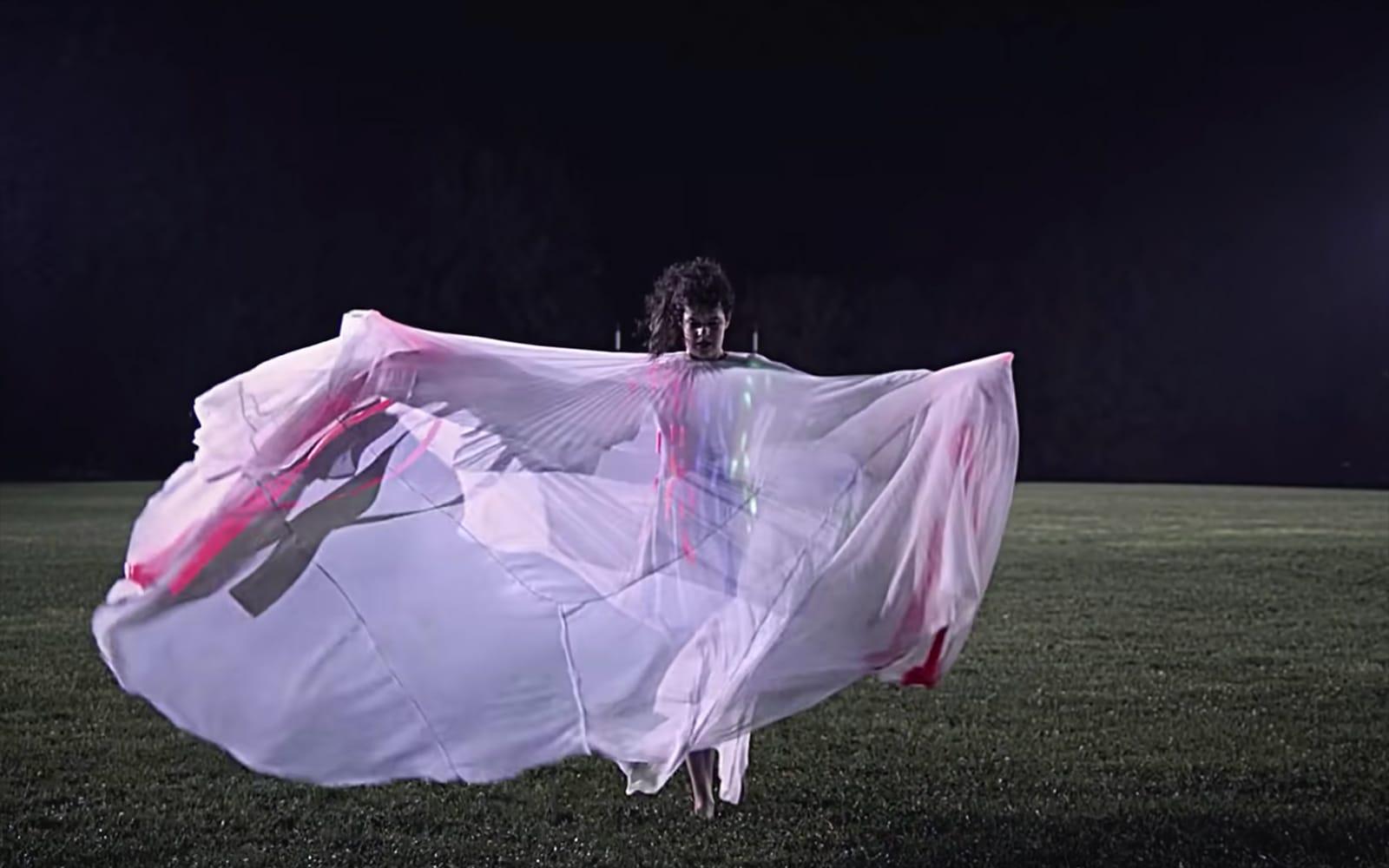
John Donne, “A Hymn To Christ, At The Author’s Last Going Into Germany”
Churches are best for prayer, that have least light;
To see God only, I go out of sight;
And to escape stormy days, I choose
An everlasting night.
C.S. Lewis, Till We Have Faces
Holy places are dark places.
Thomas Merton, Dialogues With Silence
Your brightness is my darkness. I know nothing of you and, by myself, I cannot even imagine how to go about knowing you. If I imagine you, I am mistaken. If I understand you, I am deluded. If I am conscious and certain I know you, I am crazy. The darkness is enough.
Arcade Fire, “Sprawl II (Mountains Beyond Mountains)”
I need the darkness
Someone please cut the lights

Arcade Fire’s The Suburbs has been growing on me, slowly but surely, over the last few weeks. While there are several solid tracks, it is the penultimate track — “Sprawl II (Mountains Beyond Mountains)” — that has stuck with me the most. A counterpart of sorts to Neon Bible’s “No Cars Go” in both theme and tone, “Sprawl II (Mountains Beyond Mountains)” takes the band’s inimitable over-emoting and blends it with icy synth-work à la The Knife in a way that gives me chills with each listen.
If there’s one word that I feel sums up the song, it’s “yearning.” In the song’s first verse, Régine Chassagne sings of a life that has no purpose, that has been drained of artistry and expression by a nine-to-five workday routine:
They heard me singing and they told me to stop
Quit these pretentious things and just punch the clock
At night, though, “the feelings swim to the surface” and she finds herself longing for some sort of connection. Later, in the song’s second verse, she sings of youthful yet uncertain dreams of love and escape:
We rode our bikes to the nearest park,
Sat under the swings, we kissed in the dark,
We shield our eyes from the police lights,
We run away, but we don’t know why
But these dreams are eventually squelched as well.
After both of these short yet vivid vignettes, Chassagne looks out over a desolate, ever-spreading landscape of dead shopping malls — a chillingly perfect image for the dead and hollow consumerism and materialism that is the source of the ennui explored in The Suburbs — and finds herself in need of one thing: darkness.
You can interpret that in a couple of ways. Chassagne’s cry could be one of despair: things are so awful that she just can’t bear to look at them any longer. In other words, blindness is preferable to reality. It is better to ignore the the disturbing reality of our condition so as to go on living a reasonably safe and comfortable — albeit boring and pointless — existence. However, given Arcade Fire’s track record so far, I find that particular interpretation untenable: their music is typified by searing exposés of despair and rallying cries against it, and it’s well-nigh prophetic in its railing against personal, spiritual, and social darkness.
Rather, I see it as a cry for mystery, an exclamation of a deep need to break out of the walls of mundane, everyday life — which the band chronicles thoroughly in The Suburb’s preceding tracks — and experience a richer, deeper existence. I think it’s safe to say that we have all experienced, at one time or another, something that reminds us of our place in the universe, and rather than being a terrifying, soul-crushing experience, it’s one that brings with it liberty, encouragement, and even peace. And I would hazard a guess that those moments, more often than not, occur in darkness.
I recently experienced this in a very literal manner. A few weeks ago, Lincoln was buffeted by a severe autumn thunderstorm. Power was knocked out throughout the city, including our block. So my wife and I decided to go for a nice long family drive through the Nebraska countryside.
The storm had mostly abated by the time we got on the road but the sky was still filled with blacker than black clouds, and they were laced by frequent and brilliant bursts of lightning that lit up the entire sky from east to west. It was, to put it mildly, an awe-inspiring sight, and one that enthralled us all (except for my youngest, who was asleep in his car-seat).
We drove down the highway, occasionally hitting small patches of rainfall, with the dark thunderheads looming before us and the lightning dancing above us. It was almost impossible to not keep driving towards them and in fact, at one point, after we began heading back home, I was compelled — I can think of no better word — to turn around and drive back into the blackness that had swallowed up nearly the entire sky.
In that moment, continuing home seemed pedestrian and mundane. The darker territory behind us, with its thunderheads and cascades of lightning, contained a hint of wildness and mystery; a familiar country had become wholly primal and undiscovered, if only a little bit. Driving down the country back roads in that blackness, I felt small and insignificant in the face of those massive storm clouds. At the same time, however, I felt alive in a way that, sitting here at my desk and typing on my computer, I can’t fully explain. (Indeed, the size of the discrepancy between that experience and my attempts here to describe it is almost laughable.)
I suspect that this is somewhat akin to that which Régine Chassagne and the rest of Arcade Fire are alluding to in “Sprawl II (Mountains Beyond Mountains).” We are mysterious creatures, created with eternity in our hearts (as the Teacher would say) and as such, we need mystery. We crave wonder and ambiguity. We yearn for awe and wildness. We need the darkness.
This entry was originally published on Christ and Pop Culture on .